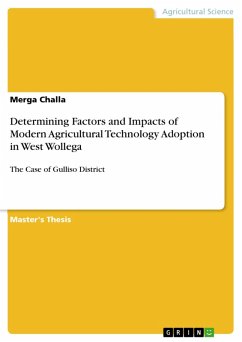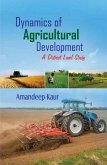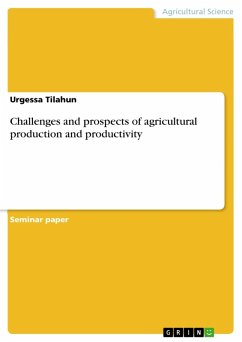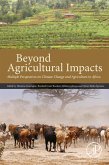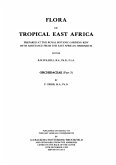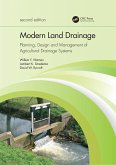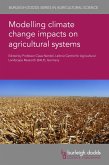Master's Thesis from the year 2013 in the subject Agrarian Studies, Wollega University (School of graduate studies), language: English, abstract: This study analyzed factors affecting modern agricultural technology adoption by farmers and the impact of technology adoption decision on the welfare of households in the study area. The data used for the study were obtained from 145 randomly selected sample households in the study area. Binary logit model was employed to analyze the determinants of farmers' decisions to adopt modern technologies. Moreover, the average effect of adoption on household incomes and expenditure were estimated by using propensity score matching method. The result of the logistic regression showed that household heads' education level, farm size, credit accessibility, perception of farmers about cost of the inputs and off-farm income positively and significantly affected the farm households' adoption decision; while family size affected their decision negatively and significantly. The result of the propensity score matching estimation showed that the average income and consumption expenditure of adopters are greater than that of non-adopters. Based on these findings it is recommended that the zonal and the woreda leaders extension agents farm and education experts, policy makers and other development oriented organizations have to plan in such a way that the farm households in the study area will obtain sufficient education, credit accessibilities and also have to train farmers to make them understand the benefits obtained from adopting the new technologies. These bodies have also to arrange policy issues that improve farm labour participation of household members and also to arrange the ways in which farmers obtain means of income outside farming activities.
Dieser Download kann aus rechtlichen Gründen nur mit Rechnungsadresse in A, B, BG, CY, CZ, D, DK, EW, E, FIN, F, GR, HR, H, IRL, I, LT, L, LR, M, NL, PL, P, R, S, SLO, SK ausgeliefert werden.

